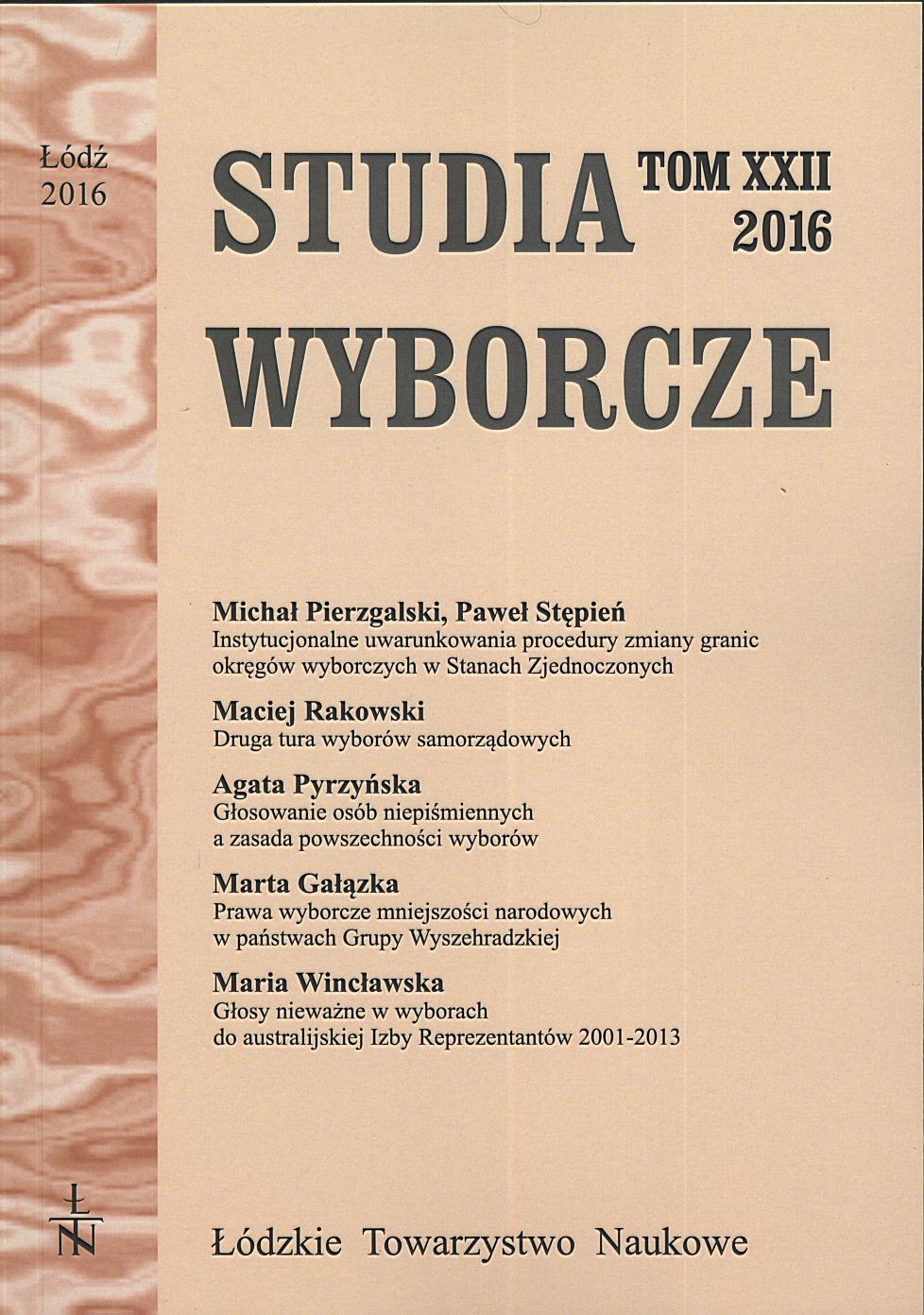Głosowanie osób niepiśmiennych a zasada powszechności wyborów
Voting by the illiterate and the principle of universal elections
Author(s): Agata PyrzyńskaSubject(s): Politics / Political Sciences, Law, Constitution, Jurisprudence, Electoral systems
Published by: Łódzkie Towarzystwo Naukowe
Keywords: elections; the illiterate; the principle of universal elections; electoral subjective; rights; voting
Summary/Abstract: The issue of participating in elections by the illiterate seems to be strongly connected with the principle of universal elections. The universal participation in elections is a fundamental requirement of every democratic election. Thereby its limitation as regards the illiterate should be treated as particularly harmful, especially while taking into consideration various reasons for illiteracy and the level of well-being in different parts of the world. The topic is really essential because of the data published by the UNESCO in accordance to which, there are 781 million of the illiterate. The first part of the paper covers historical aspects of the subject matter, including the issue of limiting electoral subjective rights of the illiterate in the form of, especially common in the 18th and the 19th century, educational qualification. The papers also concerns undemocratic ways of limiting participation of the illiterate in elections in France or in the US, which existed in the past. In the second, the prevailing legal status and the practice of some chosen states in the context of participation of the illiterate in elections, are presented. The author characterized the measures allowing the participation of the illiterate in elections which exist Kenya, Egypt and India as well as the solutions applied during the South Sudanese independence referendum in 2011.
Journal: Studia Wyborcze
- Issue Year: 2016
- Issue No: 22
- Page Range: 53-73
- Page Count: 21
- Language: Polish

